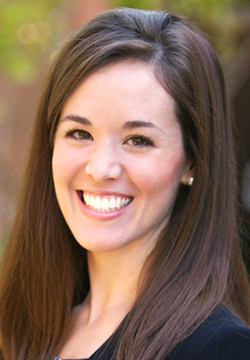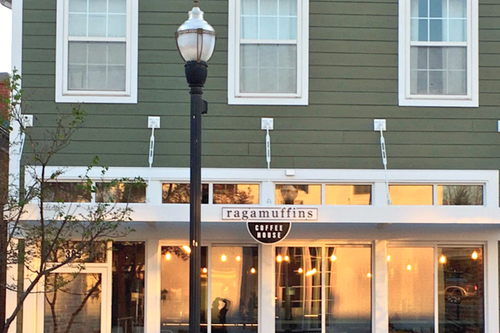Maryland Church Banned From Services in Its Own Building Fights Back in Court
As Laurel, Maryland revitalizes its downtown, they welcome karaoke bars, clubs and coffee shops. One small church being shut out claims discrimination.
Barred from holding worship services in its own building, a small Christian church in Laurel, Maryland, is fighting back in court. Located midway between Baltimore and Washington, D.C., the City of Laurel sent a second cease-and-desist letter in January to Redemption Community Church.
The city objects to Redemption meeting Sundays in its newly opened downtown coffee shop. The church founded Ragamuffins Coffee House as “a safe place for people to connect to others in meaningful community.”
After three years of public and private meetings, church leaders thought they had complied fully with building and zoning codes. But the city says no.
Threatened With Fines for Worship Services
“It’s unclear why the city has so vehemently objected to Redemption’s desire to minister to its community,” says Christiana Holcomb. “The city has been inconsistent in its policies and stated commitments.” The Alliance Defending Freedom (ADF) attorney spoke with The Stream via phone.

Christiana Holcomb
In 2017, the church relocated to a downtown coffee shop as its place of worship. Last April, they began holding weekly services at the quaint storefront. “The City of Laurel threatened the church with fines of $250 per day for holding worship services in its own building,” explains Holcomb. “Yet services have been held on Sunday mornings, when Main Street is practically vacant.”
The church began working with public interest legal firm ADF earlier this year. In February, they filed Redemption Community Church v. City of Laurel in federal court. The city addressed the matter in a brief statement.
“The suit claims the City has discriminated against the church through the exercise of its zoning authority,” it reads. “The City completely denies this claim.” On June 5, a federal judge in Maryland presided over the first hearing in the case. Both parties express confidence about prevailing in the dispute.
Meanwhile, religious liberty experts say the case reveals a larger national trend of hostility towards churches in the public square.
Outreach Through Local Enterprise
Founded in 1969, Redemption Community Church brought on Jeremy Tuinstra as pastor 15 years ago. He had new ideas about reaching those in need in the city.
“Our concern for the poor felt a little out of place,” he said to the Baltimore Sun in 2017. “Churches can be fortresses. I would stand up and preach about loving our neighbors, and I didn’t know mine.”
Redemption found a building in downtown Laurel, four miles from its historic house of worship. “The church desired to create a warm and welcoming environment, specifically for those who are unchurched,” explains Holcomb. “They wanted to open a nonprofit coffee shop and give away all its proceeds to local ministries.”
Real estate listings for the new space noted it as ideal for several purposes, including ‘church and school.’ Three churches are within a block of the storefront building. Redemption sold their sanctuary to another church in late 2015.
Over the past three years, Tuinstra met multiple times with various Laurel city boards and officials. Court documents state the church has invested over one million dollars in the space. Redemption purchased the downtown building for $470,000 in March 2015. They have since spent $600,000 in renovations to comply with city building codes.
A Heart for the Underprivileged
“Everything seemed ideal,” says Holcomb. She notes their charitable intent. “This is a church with a heart for the underprivileged and the homeless in the Laurel community.”
Redemption Community Church staff could not comment on the ongoing legal matter. Their attorney recounts how Pastor Tuinstra and his team have ministered to one homeless man this past year.

In 2017, Redemption Community Church relocated to a downtown coffee shop in Laurel, Maryland. Despite years of meetings and receiving permits, the church has been threatened with fines for holding worship services.
“Every single morning, this man walks in and respectfully requests to use the restroom,” says Holcomb. “He is always warmly welcomed in, provided with something to eat and cared for. That shows the heart of this church.”
“It’s not in downtown Laurel to make a profit,” she says. “They love and serve people in this community.”
Clubs Welcome, New Churches Blocked?
When the coffee shop opened in April 2017, church services began on Sundays. Then city officials “started probing and poking their nose around — and asking very interesting questions,” according to Holcomb.
Their queries included: Are you meeting for worship on the property? Do you raise your hands in worship on the property? Ominously, the official left saying, “There are eyes everywhere, and you are being watched.”
Via email, an attorney for the city declined to comment on specific charges. Church leaders soon learned of recent zoning code changes. Concerns were suddenly raised about such issues as limited parking.
“The city had passed a law that banned nonprofits from that particular zoning district,” says Holcomb. “They said it was to protect the historic nature of downtown Main Street. What’s interesting is how the city allows as a right secular groups such as disc jockeys, karaoke bars and comedy clubs.”
“But somehow churches are not compatible with preserving and affirming the historic character of downtown,” she concludes. Though barred from assembly to worship, the coffee shop owned by Redemption has remained open.
Local Response, Federal Protections
After ADF filed the case in February, the city soon responded.
“The City of Laurel takes great pride in applying its laws equally and without discrimination to all residents, businesses and religious institutions,” it stated online. “We will continue to do so in the future. [The City] will vigorously defend its actions in court, and expects to be fully exonerated.”
ADF has centered its case on the Religious Land Use and Institutionalized Persons Act, or RLUIPA. Enacted in 2000, the law is designed to ensure churches may freely exercise their beliefs as equal members of society. Specifically, RLUIPA states zoning laws cannot be used to treat religious groups less favorably.
Church vs. State
Over six years at Alliance Defending Freedom, Christiana Holcomb has helped defend many religious groups against censorship and bias. Assaults on churches’ freedoms have increased despite clear federal laws, she says. “Churches should absolutely be thinking about protecting themselves legally.”
FRC policy expert Travis Weber notes threats to religious liberty come from multiple angles. “Several trends are emerging in legal actions against churches,” he says. “For instance, government authorities have [sought to] control churches by considering them to be places of public accommodation.” He cites incidents in Iowa, Massachusetts and, most recently, Oregon as examples.
“The social hostility is often worse,” he adds. Michigan pastor Jeremy Schossau has “actually faced death threats for offering biblical counseling on sexuality.”
Weber says it’s mistaken to think churches are merely self-interested. “The value added to society by religious entities and organizations is hard to overstate,” he says.
“In the wake of hurricanes and floods hitting U.S. shores and throwing communities into chaos, churches have met so many needs,” Weber continues. “The total amount of social assistance provided by such groups is in the billions of dollars.” The FRC expert cites dozens of sources in research backing his claims.
Travis Weber of Family Research Council (FRC) often speaks with faith leaders nationwide on these issues. “This should concern all people of faith — regardless of specific beliefs,” he says. “If government officials can come after a church they don’t like, that same ability can be used to go after another place of worship,” continues Weber. “[RLUIPA] protects Americans from those who want to manipulate law and prevent people from having a place of worship.

Travis Weber
The church’s attorney disputes concerns about parking. “We are talking about a very small church of less than 20 people,” she says. “Parking is not an issue on Main Street on Sunday mornings.”
Holcomb notes two nearby banks and a dental office welcome congregants to park during services. “The parking issue is really a red herring on the city’s part,” she concludes.
“This is Not an Isolated Incident”
Holcomb cites other examples of hostility the church has faced. Some city officials have changed their assurances to the pastor. Others in public hearings have called for greater legal scrutiny on the church as it seeks to resolve zoning concerns.
“Why do churches, of all entities, need an ‘extra layer of scrutiny’ from city officials?” she asks. “Why have the city’s zoning laws been a virtual moving target here? It doesn’t make sense really, apart from discrimination.”
ADF is awaiting a written decision from the U.S. District Court for the District of Maryland. In the most recent hearing, on June 5, ADF opposed the city’s attempt to have the case dismissed. They also petitioned for the church to be able to resume services while the case progresses.
“Basic principles of non-discrimination towards religion are at stake here,” says Holcomb. “We’re optimistic that the outcome will be favorable.”
Explore The Stream’s complete coverage of Religious Liberty issues. Learn more about FRC’s Watchmen Pastors initiative and the ADF Church Alliance.


